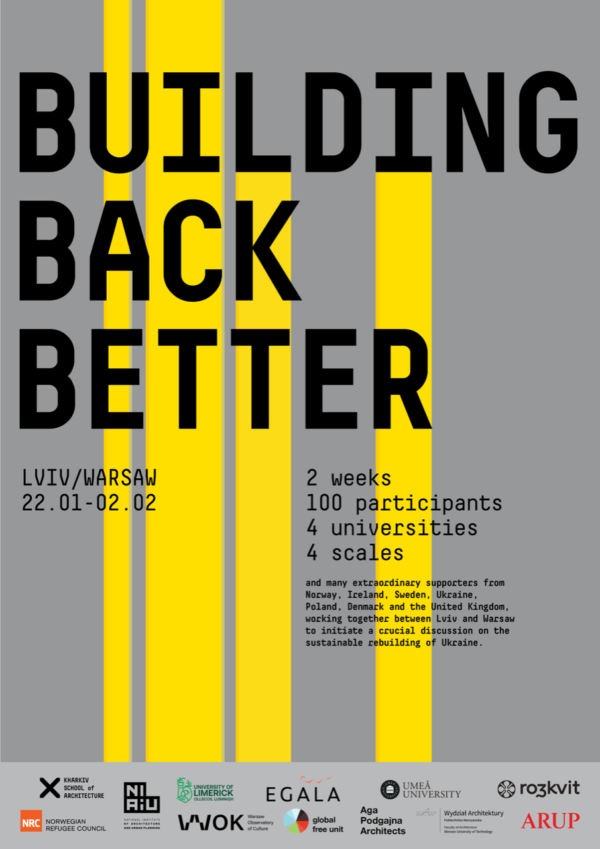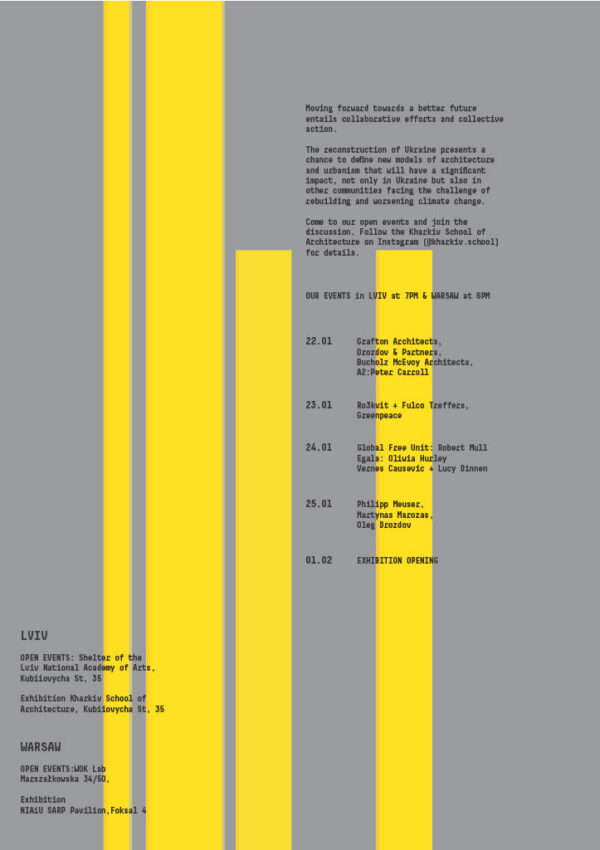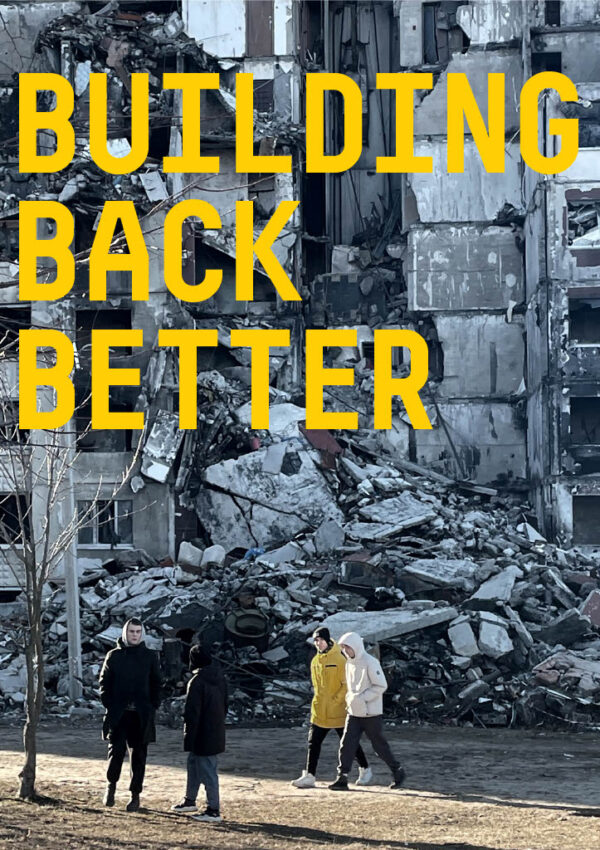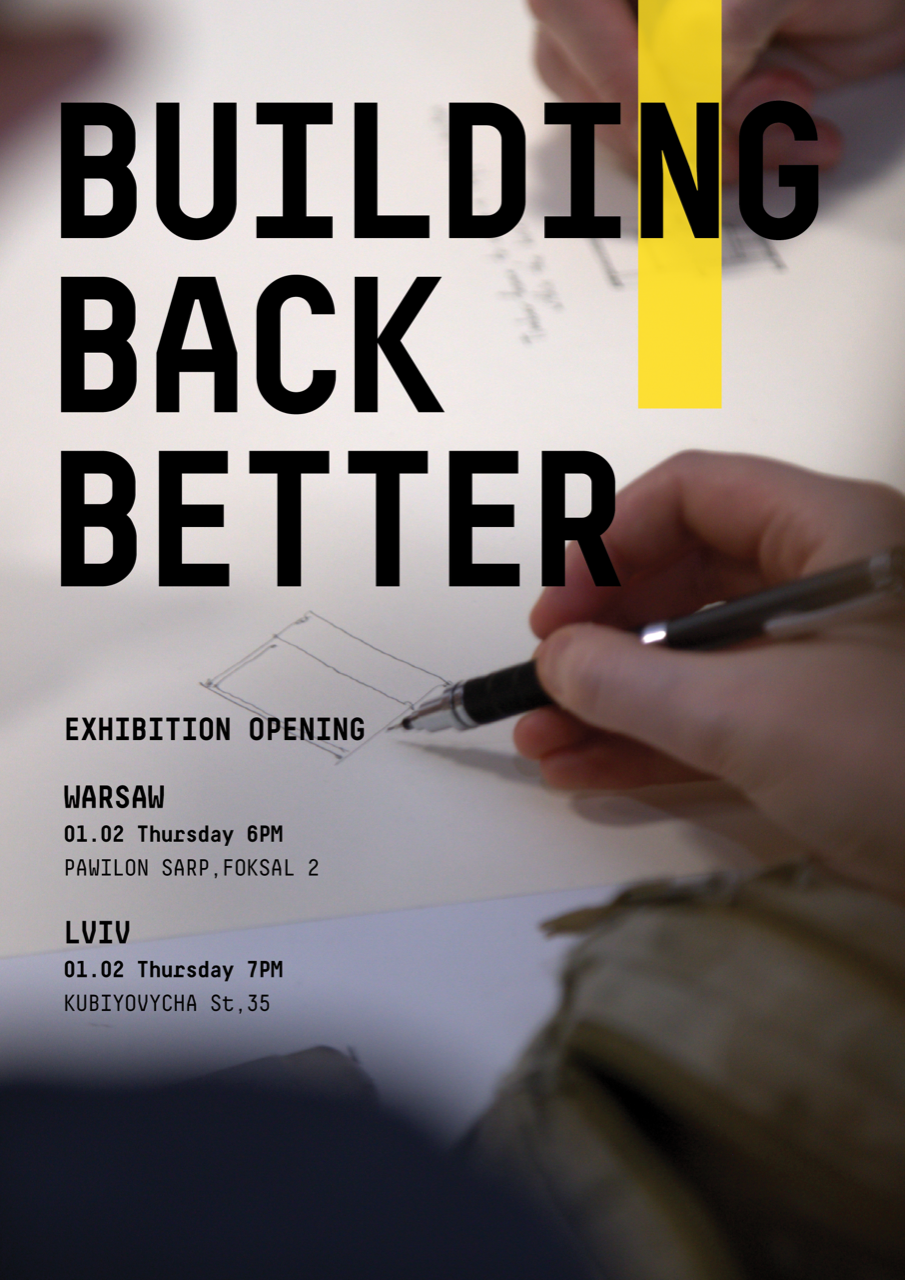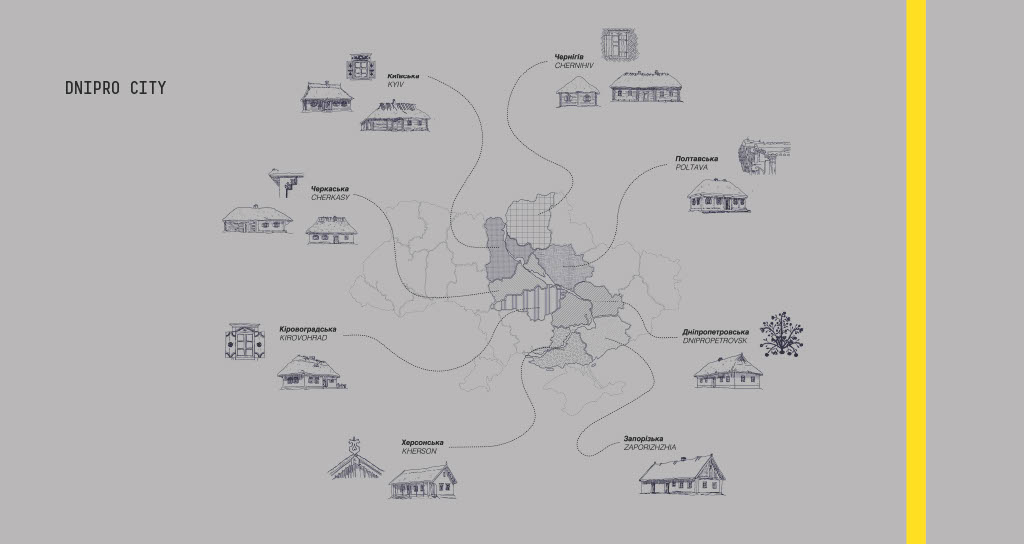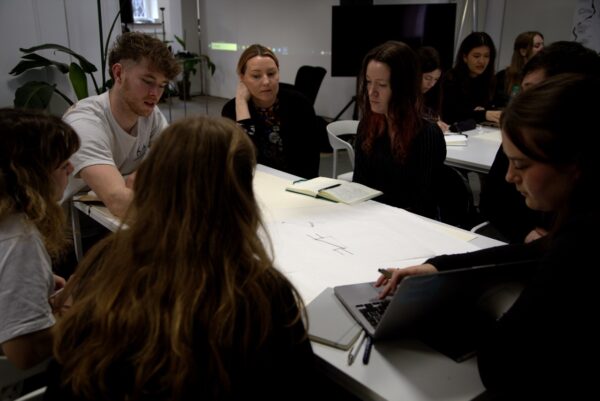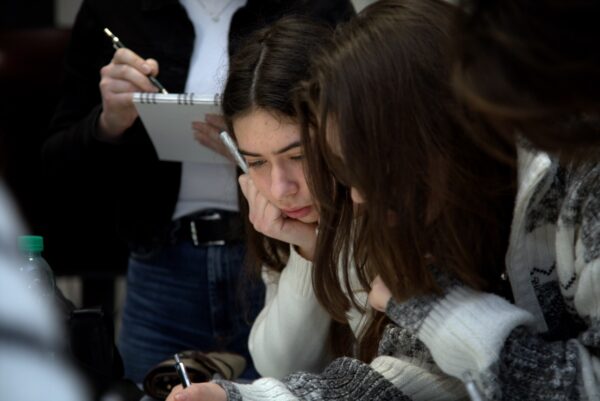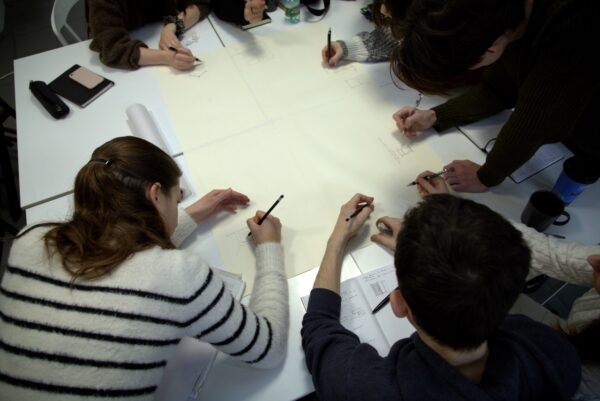Building Back Better. An International Workshop exploring solutions for the sustainable rebuilding of Ukraine
Their proposals spanned from the scale of a single housing unit, to entire micro-districts, to the scale of the Dnipro River.
The Initiative
The outcomes were captured in an exhibition, which embarked on a journey across Europe. Wherever it traveled, it inspired and generated support. The solutions it generated provided the Kharkiv School of Architecture with the assets needed to launch Ukraine’s first independent Master’s course aimed at developing the right skills to ensure a sustainable and ambitious recovery.
It’s Urgent
The ongoing conflict in Ukraine has worsened Ukraine’s pre-existing shortage of urban professionals. There is a pressing need to:
- train future urban thinkers to aid recovery,
- devise intelligent solutions and forward-thinking reconstruction techniques, considering the entire construction process, including the circular economy, supply chain, and the carbon footprint,
- promote innovative and holistic approaches, integrating environmental consciousness, new materials, and construction methodology, reusing resources,
- strengthen educational institutions and prepare the next generation of urban leaders.
The Dnipro River
The workshop’s research was centered on the Dnipro River basin, benefiting from insights shared by Rozkvit and Greenpeace. The Dnipro River has been affected by the ongoing war, leading to environmental challenges such as the destruction of the Kakhovka Dam and oil spills due to the invasion. Prior to the war, the region along the river was a hub of modernization and urbanization in Ukraine, hosting a significant portion of the population and playing a vital role as an environmental resource with over half of Ukraine’s watershed connected to it. The Dnipro River now represents both a geographical and symbolic border of Ukraine, profoundly impacted by the ongoing conflict from Zaporizhzhia to the Black Sea. This region has endured extensive destruction, with the lower Dnipro and its delta currently marking the front line.
Creating Impact
The Workshop and exhibition aimed to:
- raise awareness of the challenges involved in the recovery of Ukraine and inform those involved in the reconstruction,
- define and communicate strategies about the zero-carbon design of housing and cities, promoting sustainability and economic growth and unlocking the potential for Ukraine to become a world leader in net zero housing innovation, practice, and policy,
- provide CPD to professionals, academic credit to students and teaching experience to emergent academics,
- develop, test and communicate the content, curriculum and pedagogy of the new Masters course to be delivered by the Kharkiv School of Architecture in September 2024,
- create new international networks and communities of practice and establish an ongoing dialogue and knowledge exchange about sustainable recovery and new materials,
- capture ideas in an interactive exhibition that will travel across Europe, stimulating and inspiring.
Project partners and supporters include:
The Norwegian Refugee Council,
Kharkiv School of Architecture,
Ro3kvit: The Urban Alliance for Ukraine,
UMEÅ University, Sweden,
The Limerick School of Architecture,
Egala,
Narodowy Instytut Architektury i Urbanistyki,
Warszawskie Obserwatorium Kultury,
The Global Free Unit,
Aga Podgajna Architects,
ARUP.






